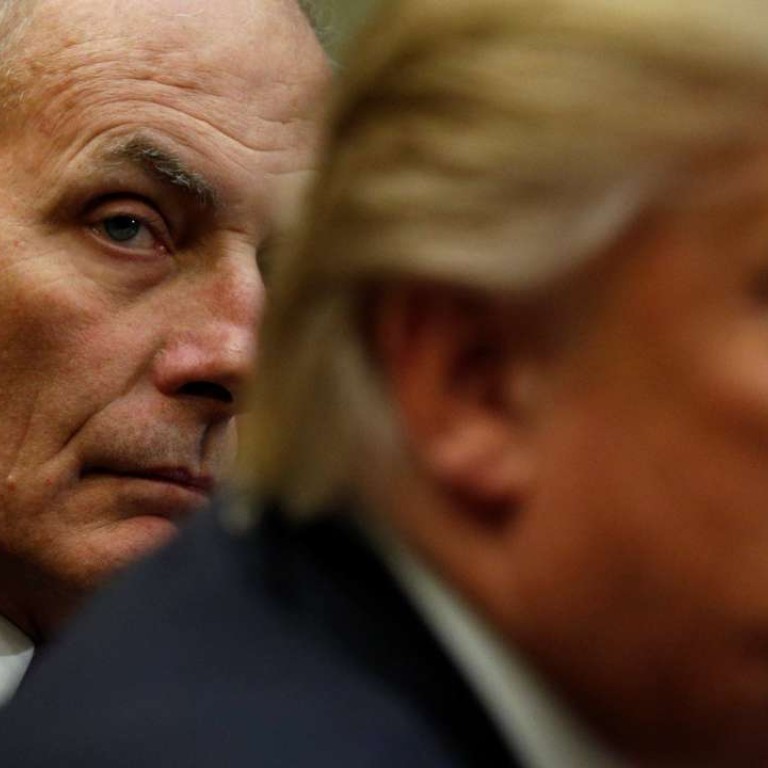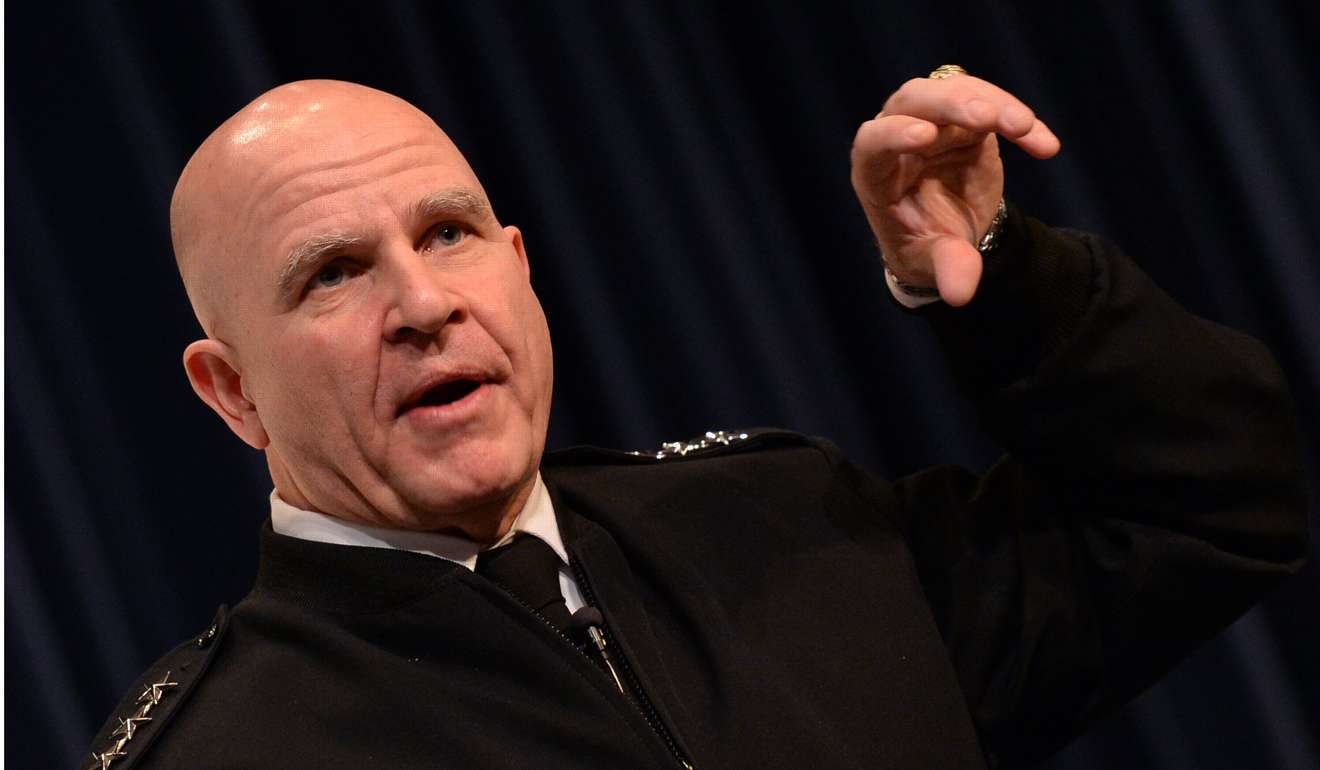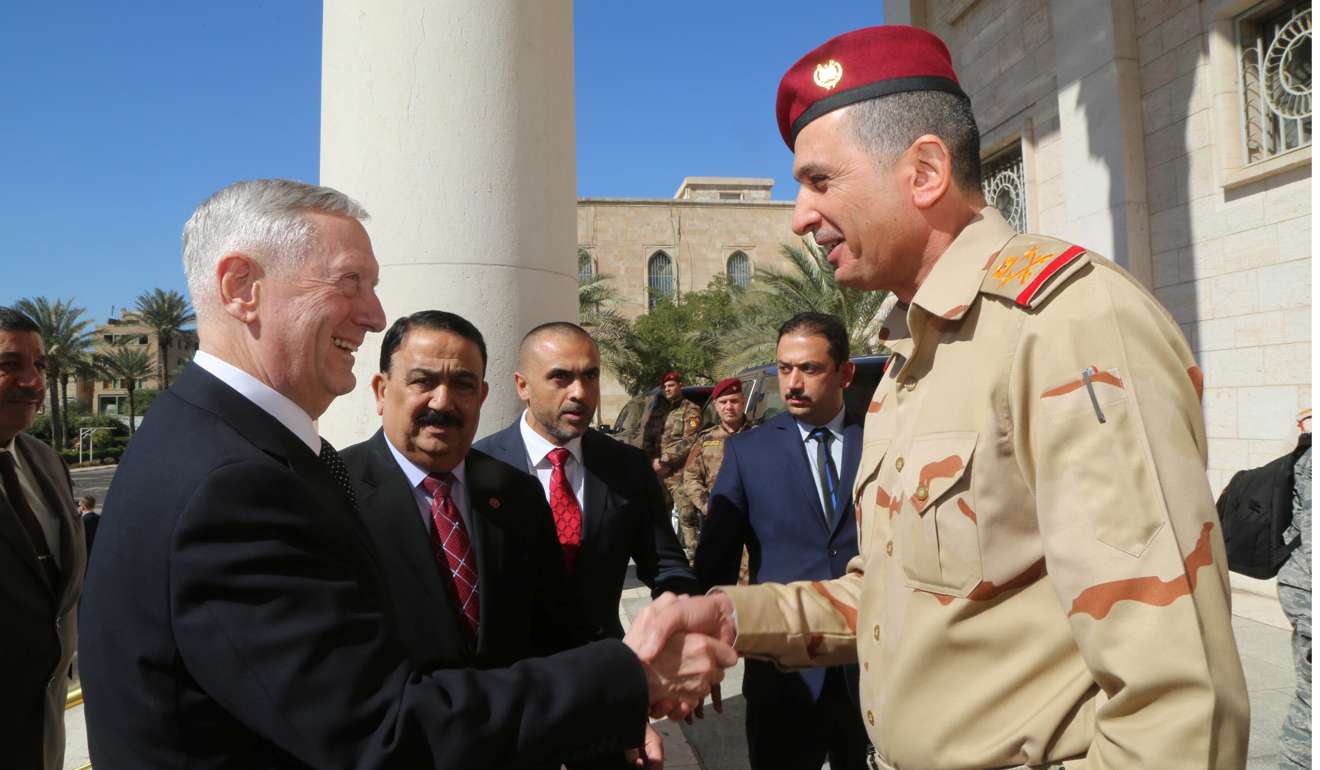
Why America is in good hands with this generation of generals
Niall Ferguson says a study of the character and career records of the three military men in Trump’s administration suggests that their rise should be celebrated, not feared. Besides, civilians are to blame for the US misadventure in Vietnam, not the military
It was almost exactly 52 years ago, on March 8, 1965, that the first American combat battalions came ashore at Da Nang, South Vietnam. In the next six months, the US government took the worst strategic decision of modern times: to escalate that military commitment just enough to entangle the United States in the war between North and South Vietnam, but not enough to win it.
Half a century later, American society still bears the scars of Vietnam. Visit any major American campus and you will encounter a new generation of student revolutionaries, self-consciously imitating the mannerisms of the anti-war movement of the late 1960s: denouncing the president as a fascist and the police as pigs.
For both generations – the baby-boomers, who long ago cut their hair and became management consultants, and the social justice warriors of today – there are few things more petrifying than the spectacle of generals in the government. They despise Donald Trump, but they fear the men in uniform.
Marches against Trump take to streets on ‘Not My President’s Day’
Should the rest of us be worried that three key posts in the Trump administration are now held by military men? General James Mattis is secretary of defence, despite having retired recently as the general in charge of Central Command. General John Kelly is secretary of homeland security, having previously run Southern Command. Lieutenant General Herbert Raymond “H. R.” McMaster was, until his appointment as national security adviser, a deputy commander at the US Army Training and Doctrine Command. It has been a long time since career soldiers held this many top-level government jobs.
Trump names another army general, Herbert McMaster, as his national security adviser

Twelve generals have been president, among them the first, George Washington. Most recently, Dwight Eisenhower served two terms in the White House after a stellar military career.
Even so, a triumvirate of generals looks more Latin American than North American
Even so, a triumvirate of generals looks more Latin American than North American. My former colleagues at Harvard have long been of the view that the executive branch should be staffed exclusively by professors. They look askance at the Trump administration. Some mutter the word “junta”. Others mug up on the fall of the Roman republic. That Jim Mattis’ nom de guerre is “Mad Dog” does not reassure them.
Yet the civilians need to be reminded of what really happened back in 1965. For, the disastrous decisions to escalate in Vietnam were taken against the advice of the generals. The biggest blunder in modern American history was the achievement of Lyndon Johnson, arguably the most politically experienced president of them all; Robert McNamara, the “whizz-kid” former president of the Ford Motor Company; Dean Rusk, a career diplomat before he ran the Rockefeller Foundation; and Walt Rostow, an economist from MIT.

Indeed, an outstanding book titled Dereliction of Duty condemns the joint chiefs of staff for failing to effectively oppose the civilians. The author of that book? Step forward H. R. McMaster, the new national security adviser.
As McMaster shows, the generals knew the war in Vietnam could not be won in the way Johnson proposed to fight it. LBJ put domestic politics first in the belief that too big an escalation of the war would jeopardise his “Great Society” welfare programme. By the end of his presidency, more than 30,000 Americans had been killed in action with no end to the war in sight.
The US constitution today has no more dependable defenders than these men
The biggest difference between American soldiers and American civilians is that the former learnt the right lessons from Vietnam. Men such as Mattis, Kelly and McMaster belong to the generation that rethought the American way of war. Mattis and Kelly enlisted in the marines in 1969 and 1970. In common with their younger army comrade McMaster, they are warrior scholars deeply committed to learning from history.
I have spent a fair amount of time with American military men over the past 15 years. Mattis and McMaster are both former colleagues of mine at the Hoover Institution. It’s been my privilege also to befriend David Petraeus and Stanley McChrystal, two of the other greats of this generation of generals. I have lectured at the country’s military academies and taught at least a dozen veterans at Harvard. So I do not say this lightly: never in the history of the English-speaking peoples has there been an officer class this good.
It is not just that they are smart and knowledgeable. Seared by the memory of Vietnam, they have an ethos of public service that is unlike anything I have ever encountered. Stories of Mattis leading from the front in Afghanistan and Iraq are legion. Kelly’s son Robert, a marine like his father, was killed by a landmine in Afghanistan in 2010. McMaster, an expert in both tank warfare and counterinsurgency, has never hesitated to speak his mind.

Whenever I am succumbing to gloom about America’s political future, I remind myself of the unexpected legacy of the wars in Afghanistan and Iraq. Although the Obama administration frittered away the hard-won gains of the later Bush years, the generation that fought those wars has come back home imbued with a new spirit. Incorruptible, indefatigable servants of their country, they have learnt the hard way about the weaknesses as well as the strengths of a political system that subordinates the military to civilian authority.
Those who fear rule by generals fail to grasp that the US constitution today has no more dependable defenders than these men. Much else about the Trump administration makes me worry. The former businessmen, including the president himself, are struggling to find their feet. There are conflicts of interest, contradictory statements and cocked-up executive orders. It is the soldiers who exude competence, just as it is the veterans in Congress who show backbone.
So stand to attention, Harvard. Half a century after the civilians stumbled into the quagmire of Vietnam, it’s time to give American militarism the salute it deserves.
Niall Ferguson is a senior fellow of the Hoover Institution, Stanford

